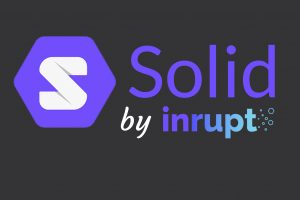The Collaborative Economy Disrupting the Software Industry #1
This article was first published on Open initiative’s blog in 2014. It’s talking about The Collaborative Economy disrupting the Software industy.
The software industry to date has thrived by reproducing the manufacturing model it was created in. But now with the power of distributed peer-to-peer networks it could benefit from new, more efficient and fairer alternatives.
Open Initiative arose from the need to make software differently. To make software that works. To stick to the real needs. To share to go faster. Because that’s not how the industry works currently. The software industry was built in an industrial culture. Large investments, strong intellectual property protection, long development cycles, and standardized products with mass sales. And in fact, that made sense for heavy industry, but it still made some sense, for distribution issues, in the early IT world.
But the Internet came and disrupted all of this. Software is specific because it has no replication cost. With virtually no distribution costs, there is no need for a long cycle anymore. You can make your prototype, test it, distribute it, upgrade it and fix it again. All of this with no heavy cost. No production line to build, no shipment to organize, no stocks to manage. And yet, we still think of IT companies the same way we think of industrial companies.
Free software, shared price
There is another way. If you invest a lot in a product to get it done, it is crucial to protect it strongly so that you can get good return on your investment. But if your investment is small, it can be better to let others use it, so that you can profit from their work as well as they profit from yours. That’s what open-source software is about. So free software is not only more transparent and fair, it is also more efficient, because it creates an ecosystem on which you can base your work to create quickly very powerful software.
But that’s not all. As software can be updated easily, it’s better to test it as often as possible. Free software makes it even easier because you get a community that can test your software quick and often. So, less risk, less investment, more efficiency, more fairness. That sounds like a good deal right? That’s what we mean by “make software differently”. That’s why Open Initiative came to life.
And you say: if it’s free software, how do you make a living? Well, as Stallman said, it is free as in “free speech”, not as in “free beer”. Free software developers need to earn money, as everybody else. And that’s why we created Open Funding. Free software brings value to everybody. So the price should be shared between everybody. And crowdfunding is about sharing the effort of funding, when free software is about sharing the effort of development. It just makes sense. So, fund it by the crowd, make it in small steps, let users test and validate, and make it open source.
By Sylvain Le Bon
2# – The Funding Dilemma
3# – Decentralize to form a strong, global network


